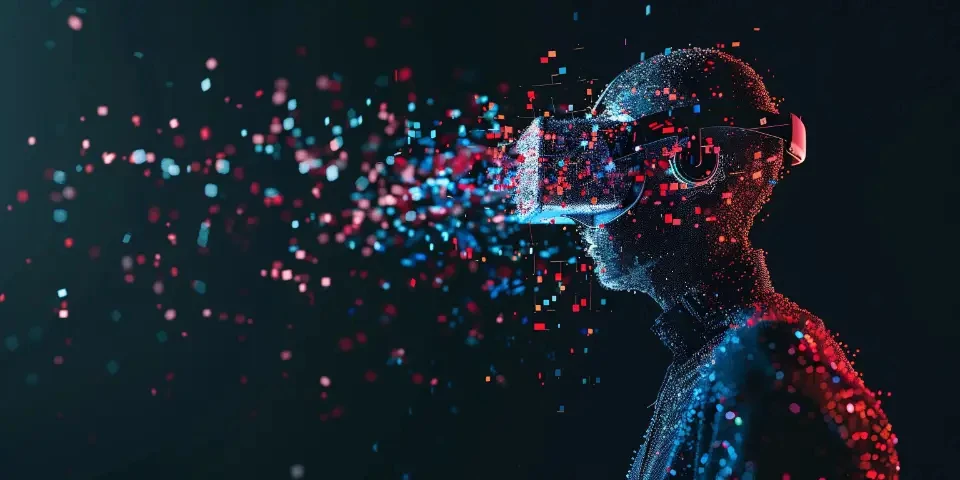Empowering Education How AI is Transforming Learning Experiences
Artificial Intelligence (AI) has emerged as a transformative force in various industries, and the education sector is no exception. The integration of AI in education is revolutionizing learning experiences, empowering students and educators alike. In this article, we will explore the different ways AI is transforming education and the potential it holds for the future.
Enhanced Personalization and Adaptive Learning
AI technologies enable personalized learning experiences by adapting to each student's individual needs and preferences. Machine learning algorithms analyze vast amounts of data to identify patterns and make data-driven recommendations. Adaptive learning platforms, such as Knewton or DreamBox, leverage AI to provide tailored content and adjust the pace of instruction based on a student's progress. This personalized approach helps students learn at their own pace, boosting engagement and overall performance.

Furthermore, AI-powered virtual tutors, such as Duolingo or Brainly, offer personalized guidance and support, answering students' questions and providing real-time feedback. These virtual tutors enhance the learning process by providing individualized attention, which may not always be possible in traditional classroom settings.
Efficient Administrative Tasks
AI streamlines administrative tasks, freeing up educators' time, and enabling them to focus on teaching. Chatbots, like IBM's Watson Assistant, automate routine administrative processes, such as answering frequently asked questions or providing course information. These chatbots offer quick and accurate responses, saving time and reducing the workload of administrative staff.
Additionally, AI-powered systems can analyze student data from assignments, exams, and assessments to generate comprehensive reports. This data-driven approach allows administrators to identify areas of improvement, track student progress, and make informed decisions to optimize curriculum and teaching techniques.
Intelligent Content Creation
AI tools can generate dynamic and interactive educational content, enhancing the learning experience. For instance, platforms like Articoolo utilize natural language processing algorithms to generate well-written articles, essays, or research papers. These AI-generated pieces can be used as reference materials, providing students with a deeper understanding of a particular topic.
In addition, virtual reality (VR) and augmented reality (AR) technologies harness AI to create immersive learning environments. Platforms like Nearpod or ClassVR combine AI and VR/AR to engage students in interactive 3D simulations, virtual field trips, and hands-on experiments. These immersive experiences make learning more enjoyable and help students grasp complex concepts more effectively.
Improving Accessibility and Inclusion
AI plays a vital role in making education more inclusive and accessible to all learners. Through speech recognition and natural language processing, AI-powered tools empower students with disabilities, allowing them to interact with computers and devices using their voice. Tools like Google's Read&Write or Microsoft's Immersive Reader enable students with visual impairments or learning disabilities to access and comprehend educational materials more effectively.
Moreover, AI-powered translation tools, like Google Translate, break down language barriers, enabling students from diverse backgrounds to access educational content in their native language. This fosters inclusivity and creates a global learning community.
Ethical Considerations and Concerns
While the integration of AI in education brings numerous benefits, it also raises ethical concerns. Data privacy and security are significant concerns when implementing AI-powered educational platforms. Educational institutions and AI developers must ensure the protection of student data and comply with privacy regulations.
Another concern revolves around the potential bias in AI algorithms. Machine learning models are trained on large datasets, and if these datasets contain biased or incomplete information, there is a risk of perpetuating inequalities in the educational system. Addressing these biases and ensuring fairness and equity in AI-powered education is a crucial challenge that needs to be addressed.
Common Questions:
Q: How can AI enhance the assessment process in education?
A: AI can automate the grading process by analyzing multiple-choice questions or even grading subjective answers using natural language processing algorithms. This saves educators' time and provides students with fast feedback.
Q: Can AI completely replace human teachers?
A: No, AI cannot replace human teachers. AI is a tool that enhances teaching and learning processes. Human teachers bring empathy, creativity, and moral values to the educational experience, which cannot be replicated by AI.
Q: Are there any risks of AI replacing jobs in the education sector?
A: AI may automate certain administrative tasks, but it is unlikely to replace teachers. Instead, AI will enable educators to focus on more personalized instruction, student support, and complex problem-solving.
Conclusion
AI's implementation in education holds immense potential for transforming learning experiences. From personalized and adaptive learning to efficient administrative tasks and inclusive education, AI empowers both students and educators. However, ethical considerations and concerns must be addressed to ensure the responsible and equitable use of AI in education. As AI continues to evolve, it is crucial to embrace its benefits while carefully navigating the challenges it brings.
References:
[1] Knewton: https://www.knewton.com/
[2] DreamBox: https://www.dreambox.com/
[3] IBM Watson Assistant: https://www.ibm.com/cloud/watson-assistant/
[4] Articoolo: https://articoolo.com/
[5] Nearpod: https://nearpod.com/
Explore your companion in WeMate